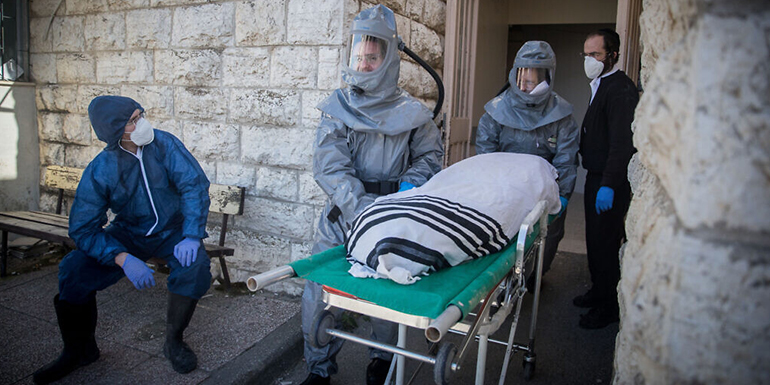Final wishes to be buried in Israel leads diaspora families to take extreme measures during the COVID-19 Pandemic
Jews grow up learning about the benefits of being buried in the holy land their whole lives. The stories and spirit of an Israel burial have become a part of the Jewish psyche, and important addition in end of life wishes for followers of Judaism around the world.
The importance of being buried in Israel
There are three main reasons why Jews from around the world make their final wish to be buried in the holy land. Firstly, according to the religious text, the Talmud, being buried in the promised land offers a cleansing of the sins. Meaning all would be forgiven, even if you were not a permanent resident of Israel your whole life.
Secondly, the Jewish faith believes that in the era of Moshiach, the Messiah will return and the dead will be resurrected in Israel. Meaning that individuals need to be buried in Israel to leave their graves swiftly. Those outside of Israel will be resurrected as well, but will have to burrow through the earth until they reach Israel, making it less appealing.
Lastly, many wish to be close to family. Whether that means in family plots next to loved ones or by family who are still residing in Israel. So they can continue to visit the grave.
How Israel is currently dealing with COVID-19 victims
Burials in Israel for Jewish citizens are handled by the state religious authorities. Together with the Health Ministry, the religious burial authorities were able to organize and create a plan to continue performing traditional Jewish funeral rights.
There are now four specialized units for the interment of victims of the COVID-19 pandemic. The units are made up of volunteers who perform the rites while following strict disinfectant regulations in full protective gear.
The bodies are thoroughly cleaned and doused in water in a series of purification rituals, before being dressed in the white linen shrouds (tachrichim) in which they are buried. For extra protection, COVID-19 bodies must all be buried in plastic to prevent the spread, but they can be buried in standard plots, wherever they have been arranged.
Small outdoor funerals are still allowed for up to 10, but loved ones are not allowed to have any physical contact with the body.
Diaspora Jews go the distance
The Israeli Health Ministry requires that deceased being flown in, who died from COVID-19, be sent in special body bags, but otherwise it’s business as usual and they have not closed the door on those looking to return to the holy land.
Last year, approximately 1,500 Jews were flown to Israel for burial including both foreigners and Israeli’s. Since the beginning of this year, 353 bodies have been flown into Israel, with 55 being confirmed COVID-19 victims.
It’s common practice for Jews to want to be buried in Israel, for its religious significance, and the pandemic hasn’t changed that, but it has made it more tedious for families to make this final wish come true.
Many airlines have stopped because of the virus, making it difficult to get the bodies to Israel and the ones that are flying have hesitations on transporting infected bodies. Families are getting creative though and making layovers via Europe or New York to make it there.
As can be expected, the elite meanwhile are sparing no expense and chartering private planes to insure their loved ones arrive in the promised land. Spending upwards of $200,000, reportedly, compared to the $3,000 commercial airlines charge, outside the pandemic.
In addition to the cost of the flights and paperwork, families also need to purchase a plot. Similar in pricing to the US, families can expect to pay between $10,000 – $30,000. For European Jews this can actually end up being more economic in the long run. Since European plots are normally on a rented basis and families can be forced to pay more than the cost of the Israel plot in renewal fees.
Adding to the difficulties, when families arrive in Israel they must go into quarantine for 14 days. They are allowed to leave to attend the funeral, but afterwards have to continue to be quarantined.
